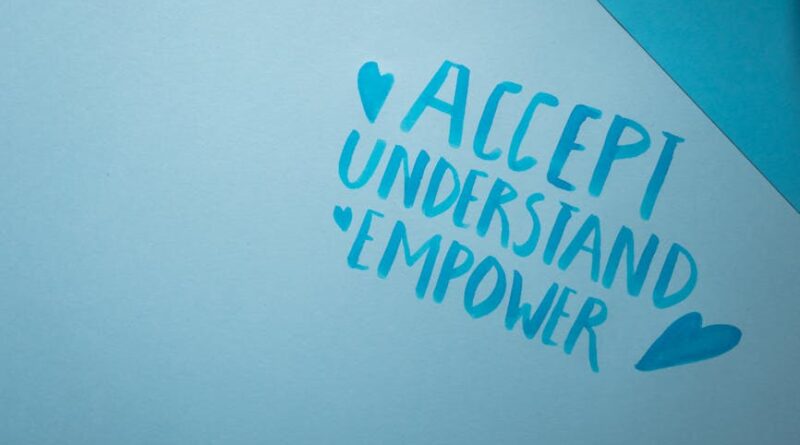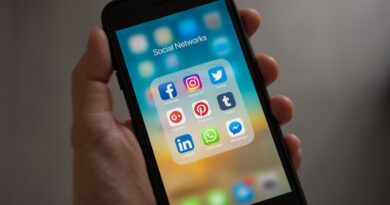Empowering Marginalized Communities Online: A Comprehensive Guide
As the world becomes increasingly interconnected through the internet, the power of online platforms to empower marginalized communities cannot be understated. From providing access to information and resources to creating spaces for advocacy and representation, the digital realm offers a multitude of opportunities for those who have historically been marginalized. In this article, we will delve into the various ways in which marginalized communities can be empowered online, exploring the challenges they face, the tools and strategies available to them, and the impact of their digital empowerment on society as a whole.
The Digital Divide: A Barrier to Empowerment

Before delving into the ways in which marginalized communities can be empowered online, it is crucial to address the digital divide that often serves as a barrier to their access to the internet and digital resources. The digital divide refers to the gap between those who have access to technology and the internet and those who do not, often along lines of race, class, and geography.
For marginalized communities, the digital divide can exacerbate existing inequalities, limiting their ability to fully participate in the digital world. Lack of access to technology, internet connectivity, and digital literacy skills can further marginalize these communities, hindering their opportunities for empowerment.
Efforts to bridge the digital divide, such as providing affordable internet access, digital skills training, and access to devices, are essential in ensuring that marginalized communities can fully participate in the digital landscape and reap the benefits of online empowerment.
Access to Information and Resources

One of the key ways in which marginalized communities can be empowered online is through increased access to information and resources. The internet serves as a vast repository of knowledge and resources, offering opportunities for learning, skill development, and networking.
Online platforms can provide marginalized communities with access to educational materials, job opportunities, healthcare information, legal resources, and more. By bridging the information gap, the internet can empower individuals to make informed decisions, advocate for their rights, and improve their quality of life.
For example, online educational platforms like Khan Academy and Coursera offer free or affordable courses on a wide range of subjects, allowing individuals from marginalized communities to acquire new skills and knowledge. Similarly, websites like Healthline and WebMD provide valuable health information and resources that can empower individuals to take control of their well-being.
Building Communities and Networks

Another important aspect of empowering marginalized communities online is the ability to build communities and networks that provide support, solidarity, and a sense of belonging. Online platforms such as social media, forums, and support groups can connect individuals from marginalized communities with others who share similar experiences and challenges.
These online communities can serve as safe spaces for individuals to share their stories, seek advice, and find emotional support. By fostering connections and building relationships, marginalized communities can amplify their voices, advocate for their rights, and effect social change.
For example, the #BlackLivesMatter movement has used social media platforms like Twitter and Instagram to raise awareness about police brutality and systemic racism, mobilize protests and activism, and connect individuals who are passionate about racial justice. The power of online communities in amplifying marginalized voices and driving social movements cannot be underestimated.
Advocacy and Representation

Empowering marginalized communities online also involves advocating for their rights, challenging stereotypes and discrimination, and promoting representation and diversity in digital spaces. The internet can be a powerful tool for advocacy, enabling individuals to raise awareness about social issues, mobilize support, and hold institutions and decision-makers accountable.
Representation matters in the digital world, as it shapes the narratives and images that are circulated online. Marginalized communities often face underrepresentation or misrepresentation in mainstream media and digital platforms, perpetuating harmful stereotypes and erasing their experiences.
By creating their own content, sharing their stories, and challenging dominant narratives, marginalized communities can reclaim their narratives and ensure that their voices are heard. Online platforms such as YouTube, podcasts, and blogs offer spaces for individuals to share their perspectives, experiences, and creativity with a global audience.
Digital Literacy and Skills Development
In order to fully participate in the digital world and harness its potential for empowerment, marginalized communities need access to digital literacy skills and training. Digital literacy refers to the ability to use digital technologies effectively, navigate online platforms, critically evaluate information, and protect one’s privacy and security.
By equipping marginalized communities with digital literacy skills, they can better advocate for their rights, access information and resources, build networks and communities, and participate in the digital economy. Digital skills training programs, workshops, and online resources can play a crucial role in bridging the digital divide and empowering marginalized communities.
For example, organizations like Girls Who Code and Black Girls Code offer coding and computer science programs specifically designed for girls and young women from underrepresented communities. These programs not only equip participants with technical skills but also instill confidence, creativity, and a sense of empowerment.
Online Safety and Privacy
As marginalized communities navigate the digital landscape, it is crucial to prioritize online safety and privacy to protect themselves from harassment, discrimination, and cyber threats. Online platforms can sometimes be hostile environments where individuals from marginalized communities face online abuse, cyberbullying, doxxing, and other forms of digital violence.
Educating individuals about online safety practices, promoting digital literacy skills, and creating safe and inclusive online spaces are essential in ensuring that marginalized communities can navigate the internet safely and securely. Platforms must also take steps to combat hate speech, harassment, and misinformation, and to protect the privacy and security of their users.
Organizations like the Electronic Frontier Foundation and Access Now work to defend digital rights, privacy, and security for all individuals, with a focus on marginalized communities who are often disproportionately affected by online threats. By advocating for digital rights and promoting online safety, these organizations empower individuals to assert their rights and protect themselves in the digital world.
Digital Empowerment and Social Change
Ultimately, the empowerment of marginalized communities online has the potential to drive social change, challenge power structures, and create a more inclusive and equitable society. By harnessing the power of the internet to access information, build communities, advocate for their rights, and develop digital skills, marginalized communities can amplify their voices, challenge injustices, and effect systemic change.
Online platforms have the power to democratize access to information, amplify marginalized voices, and mobilize collective action for social justice. From online petitions and campaigns to digital storytelling and activism, the internet offers a myriad of ways for individuals from marginalized communities to advocate for change and make their voices heard.
Conclusion
To wrap things up, empowering marginalized communities online is not just about providing access to technology and the internetit is about creating opportunities for learning, connection, advocacy, and empowerment. By addressing the digital divide, fostering digital literacy, building online communities, and promoting representation and safety, we can ensure that marginalized communities have the tools and resources they need to thrive in the digital age.
As we continue to navigate the complexities of the digital world, it is essential that we center the voices and experiences of marginalized communities, amplify their stories, and work towards a more equitable and inclusive online environment. Together, we can harness the power of the internet to empower marginalized communities, drive social change, and create a more just and compassionate world for all.




